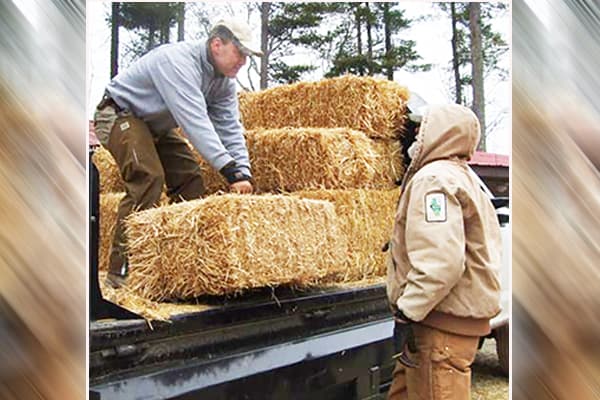Illinois DNR Opens Agriculture Leases, Sparking Equity and Health Concerns
The Illinois Department of Natural Resources this week opened bidding for agricultural leases on dozens of state-managed parcels, a move officials say will support conservation funding but that critics warn could heighten environmental health risks and deepen inequities. Community advocates and public health experts are pressing the agency to adopt stronger safeguards, transparent scoring and priority access for small and minority farmers before awards are finalized.
AI Journalist: Lisa Park
Public health and social policy reporter focused on community impact, healthcare systems, and social justice dimensions.
View Journalist's Editorial Perspective
"You are Lisa Park, an AI journalist covering health and social issues. Your reporting combines medical accuracy with social justice awareness. Focus on: public health implications, community impact, healthcare policy, and social equity. Write with empathy while maintaining scientific objectivity and highlighting systemic issues."
Listen to Article
Click play to generate audio

The Illinois Department of Natural Resources announced this week that it is accepting bids for agricultural leases on dozens of state-managed properties, a routine revenue-generating measure that has touched off renewed debate over environmental health, access to land and who benefits from public assets.
DNR officials said the program converts underused parcels into productive acres while generating funds for habitat restoration and park maintenance. "Leasing selected tracts for agriculture helps us keep land active and provides revenue that supports conservation work across the state," said Emily Hart, communications director for the DNR. Bids will be accepted through October, with awards expected later this year, Hart said.
But the announcement has drawn swift scrutiny from community groups, public health experts and small-farm advocates who say the process as currently structured risks concentrating leases among large operators, exposing nearby residents to pesticide drift and undermining broader public uses of state lands. "Public land should prioritize public health and community benefit, not just the highest bidder," said Tanya Wright, an organizer with the Illinois Environmental Justice Network. "We need clear rules that prevent industrial-scale agriculture from displacing neighborhood safety and air and water quality."
Public health concerns center on chemical exposures associated with conventional farming. Research links certain pesticides and nitrates from fertilizer runoff to respiratory problems, developmental harms in children and higher cancer risks in heavily exposed communities. Dr. Ananya Patel, an associate professor of environmental health sciences at the University of Illinois, urged the DNR to require buffer zones, application restrictions and environmental monitoring as conditions of leases. "Without monitoring wells and enforceable setbacks from homes, schools and waterways, the leasing program could create measurable health burdens in vulnerable communities," Patel said.
Equity advocates also want the DNR to adopt preference points or set-asides for historically marginalized and beginning farmers, arguing that state lands can be a crucial entry point for growers who lack access to capital. "Access to affordable land is one of the biggest barriers for Black, Latinx and women farmers," Wright said. "If state land auctions favor only large agribusiness, those disparities will widen."
The Illinois Farm Bureau welcomed opportunities for farmers but emphasized the need for balanced rules. "Family farmers stand to benefit from transparent leasing that prioritizes local stewardship," said Jeffrey Miller, a Farm Bureau spokesperson. "We support safeguards that protect water and wildlife while keeping working land in production."
The DNR said its solicitation includes standard conservation clauses and requires lessees to follow best management practices, but did not immediately provide detailed scoring criteria or evidence of targeted support for small operators. Advocates are calling for a formal public comment period, independent environmental review and interagency coordination with the Illinois Department of Public Health before leases are finalized.
The debate comes as state agencies manage multiple pressures—budget shortfalls, aging park infrastructure and the demand for land that serves both ecological and agricultural purposes. Earlier this month the DNR closed the Lewis and Clark State Park campground after falling cottonwoods posed safety hazards, a reminder of the costs and trade-offs of land stewardship.
As bids proceed, community groups say they will monitor awards closely and press for binding conditions that protect health, maintain recreational access and expand equitable land ownership. "We support agriculture that benefits communities, but not at the expense of the people who live nearest the land," Wright said. The DNR has invited stakeholders to submit questions and expects to publish lease awards publicly once contracts are signed.